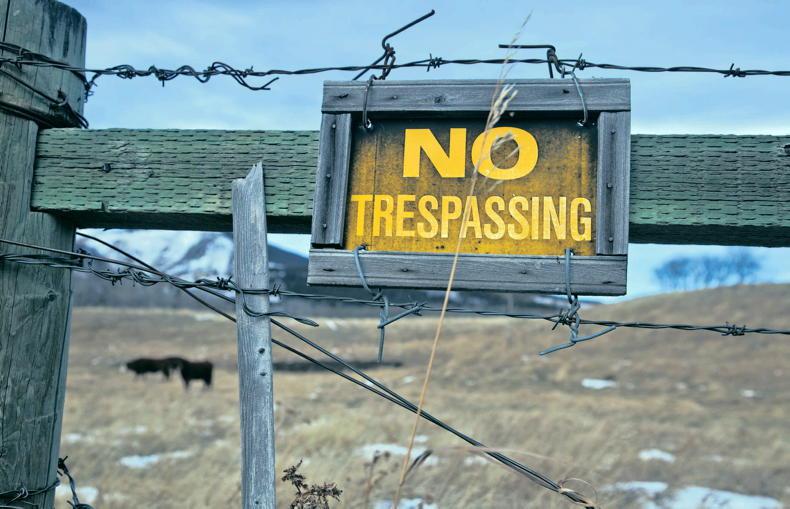Question: I am a landowner and a neighbour notified me that two men were in my field with two dogs looking around the property. While they had dogs, they did not seem to have guns which meant they were not hunting. Their car blocked the gate. They left the property when I went to approach them. I fear that they were scoping out the place for a robbery.
What should I do if I encounter this again? My neighbour said I should contact the Gardai to make them aware of the situation, but what can they do if the men didn’t actually do anything? Is it worth letting them know just in case this happens again?
Answer: If you have concerns about trespassers on your property, the Gardai should be your first point of contact. I appreciate that there can be a delay in them arriving at the scene but at least they will have it on record, especially if there are further incidents.
Generally farmers are happy to facilitate members of the public going for a walk over their lands. However, under Irish law in the absence of a right of way, the landowner is well entitled to deny access or indeed withdraw previous consent without prior notice.
Due care
If someone is not taking due care or causing interference while on your property, common sense would tell you to approach them and ask them to leave. The Gardai would advise not to make any approach. They advise landowners to phone the Gardai, keep the trespassers in sight and video them on your phone if you can.
The Garda Siochána are empowered to visit and if they find any person on the land, they can demand that the person gives them their name and address and that they leave and remove any objects under their control from the land. If the person refuses to comply with a Garda’s directions, that person is liable for prosecution. You may be asked to give a statement in relation to bringing a case for prosecution by the DPP.
Hunters have no right to enter privately owned land without permission. The owner/occupier can demand names and addresses of a person hunting on land without permission or indeed present on land without permission. The onus of proving that they have authority to be present on the property rests with the person claiming to be on the land. The occupier is not under any duty of care under the Occupiers Liability Act to a trespasser present for the purpose of committing an offence. You can put a preservation notice in the local paper and signs on the land to deter trespassers.
Use of force
The law in relation to defending yourself and your property differs depending on where the incident occurs. The legislation makes it clear that a person who is in his or her dwelling may use force against another person to protect themselves or others or their property or to prevent the commission of a crime.
However, the force used can only be such force as is reasonable in the circumstances. In determining what is reasonable force, the test is whether the householder believes the intruder has entered for the purpose of committing a crime. In considering whether the person using the force honestly held the belief, the court or the jury shall have regard to the circumstances of the incident.
While the legislation provides that the force can extend to causing death, this would only apply in protection of persons. It rarely, if ever, would be regarded as reasonable to use deadly force for the protection of property. If the intruder was drunk or insane, you are still entitled to use reasonable force
There was a concern that an intruder could subsequently make a personal injury claim if they were injured while on the property. However, the legislation clarifies that the intruder will not be able to subsequently claim damages for any injury caused to him by the use of reasonable force.
Further, the householder is not under any obligation to retreat before using the force concerned. In relation to force used outside the ‘dwelling’, certain duties were imposed on a claimant of self-defence in order to justify or excuse the use of defensive force, one of these requirements was a duty to retreat.
Disclaimer: The information in this article is intended as a general guide only. While every care is taken to ensure accuracy of information contained in this article, Aisling Meehan, Agricultural Solicitors and Tax Consultants does not accept responsibility for errors or omissions howsoever arising. E-mail aisling@agrisolicitors.ie






 This is a subscriber-only article
This is a subscriber-only article










SHARING OPTIONS: